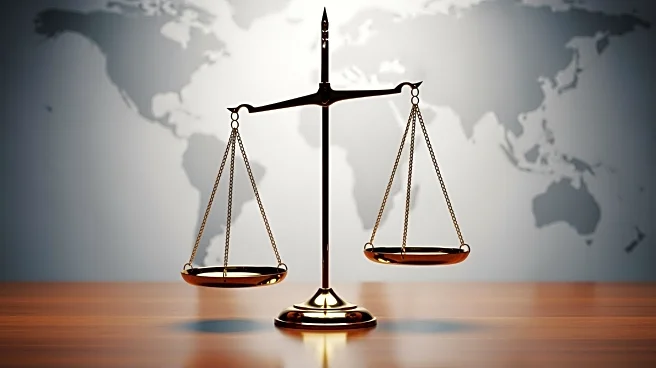What's Happening?
The Supreme Court is set to review the legality of tariffs imposed by President Trump, which have been a central part of his economic policy. These tariffs, introduced in April, apply to nearly all global trade partners and have been justified by Trump as
necessary for national security. The administration claims these tariffs have generated significant revenue and led to trade deals with several countries, including the UK, EU, Japan, South Korea, and China. However, the tariffs have also caused economic uncertainty and increased costs for American businesses and consumers, with estimates suggesting they could cost U.S. households $1,700 annually.
Why It's Important?
The Supreme Court's decision on this case could have far-reaching implications for U.S. trade policy and the economy. If the tariffs are upheld, it could reinforce the executive branch's power to impose such measures without congressional approval, potentially leading to more aggressive trade policies. Conversely, if struck down, it could limit the president's ability to unilaterally impose tariffs, affecting ongoing and future trade negotiations. The outcome could impact global markets, trade deficits, and the cost of goods for American consumers.
What's Next?
The Supreme Court's ruling will be closely watched by businesses, trade partners, and political leaders. A decision to uphold the tariffs could embolden the administration to pursue further trade measures, while a reversal could lead to a reevaluation of current trade strategies. Stakeholders will be assessing the potential economic impacts and preparing for adjustments in trade practices depending on the court's decision.
















